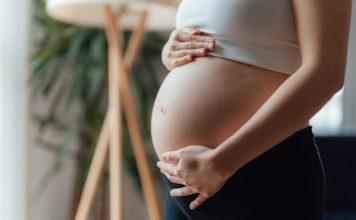Healthcare professionals have warned that unborn babies of pregnant women who are exposed to radiation face serious risks of developing life-threatening complications and disorders.
These potential health effects include restricted growth, birth defects, impaired brain development, and an increased likelihood of developing cancer.
The severity of the impact on a developing fetus from radiation exposure, as highlighted by senior medical experts, is closely tied to the amount of radiation it receives.
The United States Centers for Disease Control and Prevention caution that radiation exposure during pregnancy can heighten the risk of cancer in the child, particularly when the radiation doses surpass 0.1 Gy, which is significantly higher than the usual doses involved in diagnostic radiology procedures.
“Most of the ways a pregnant woman may be exposed to radiation, such as from a diagnostic medical exam or an occupational exposure within regulatory limits, are not likely to cause health effects for a foetus. However, accidental or intentional exposure above regulatory limits may be cause for concern”, CDC Stated.
Wakadaily learnt that, Physicians have warned about the dangers of inhaling substances that emit radiation during pregnancy, as it can potentially result in fetal death.
Professor Ifeoma Okoye, a renowned expert in Radiation Medicine at the University of Nigeria, Nsukka, emphasized the importance of pregnant women avoiding exposure to radiation.
Drawing from her extensive 42 years of experience in the medical field, Professor Okoye explained the risks associated with pregnant women unintentionally ingesting radioactive materials.
She highlighted that if a woman absorbs these substances into her bloodstream, they could be transmitted to the fetus through the umbilical cord.
Hence, pregnant women are strongly advised to steer clear of any sources of radiation to safeguard the health and well-being of the developing fetus.
Okoye Noted , “Death occurs in very severe cases depending on how much radiation the foetus was exposed to and also if the mother ingests radiation materials and it is transferred through the umbilical cord to the baby.
“The foetus can also be at risk of developing other health consequences when exposed to too much radiation in the womb. Too much radiation is equivalent to an individual having 500 chest X-rays.”
She mentioned that the likelihood of experiencing these health issues is contingent upon the stage of pregnancy, specifically how advanced it is.
For the foetus, it depends on the gestational stage, the health consequences of exposure have to be at bases that are greater than 0.5 gray. It can be severe, even if such a dose is too low to cause an immediate effect on the mother, it can affect the foetus.
“In a general sense, babies are particularly sensitive to radiation during their early development which is between week two and week 18.
“Most literature will leave it at eight to 18 weeks in pregnancy because, at two weeks, most people aren’t aware they are pregnant”, she stated.
Okoye stressed the importance of minimizing radiation exposure to a developing fetus as it can have serious health impacts, particularly on the brain.
She stated , “The health consequences can include stunted growth like intrauterine growth restriction meaning the development of the baby is not in sync with the age of the pregnancy. A malformation can also occur leading to the baby having impaired brain function. In the long term, radiation exposure can also lead to cancer.”
Dr. Aliyu Sokomba, a Public Health Physician at Ahmadu Bello University Teaching Hospital in Zaria, Kaduna State, emphasized that the health dangers associated with radiation exposure are greater for pregnant women.
He stated , “When a person is asked to do a repeated x-ray, he or she is exposed to ionizing radiation. The radiation disrupts cell formation. This abnormal cell formation can cause cancer.
“It can affect the genital tract. The reproductive organs like the ovaries can get damaged and after that particular pregnancy, the woman may have difficulty getting pregnant again. It can also affect the kidneys of the mother and baby”, Sokomba stated.
